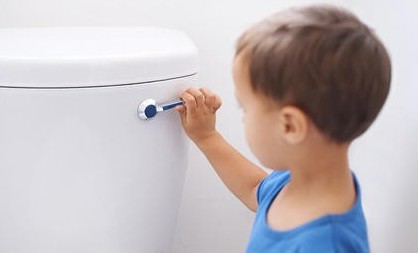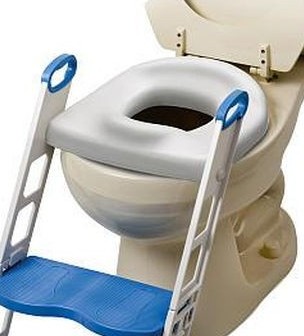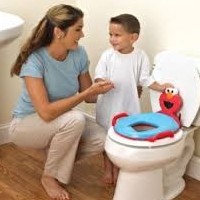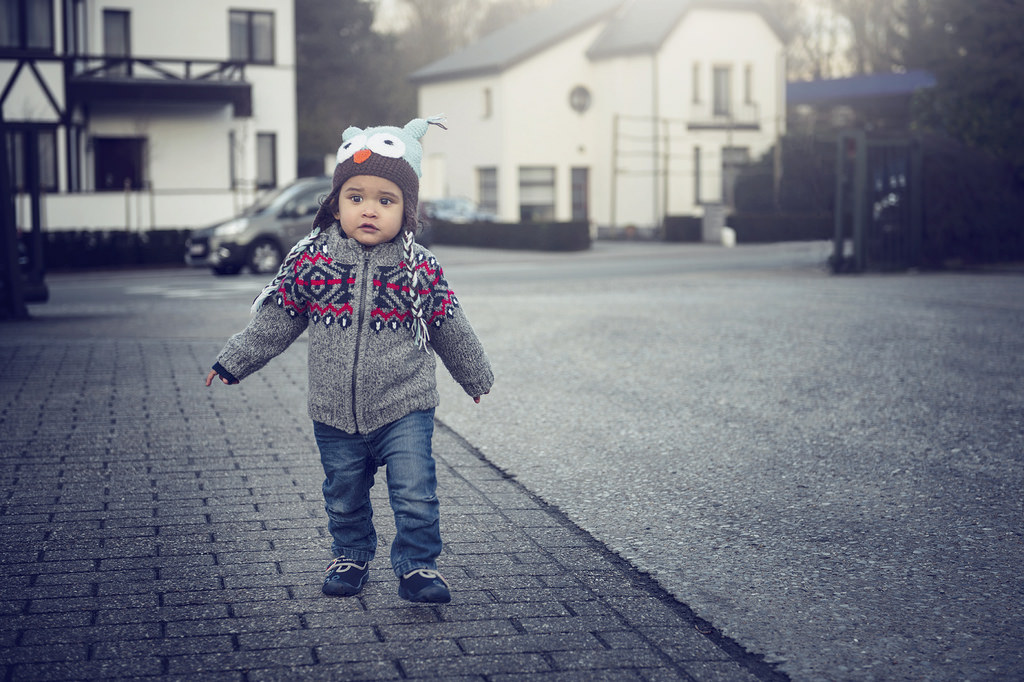Proven Strategies for Potty Training Boys with Ease
Are Boys More Difficult to Potty Train?
Contrary to a commonly held misconception, potty training a boy is not more difficult than potty training a girl, except for teaching boys to stand up while voiding. You can start him sitting on the potty chair and just teach him to stand later. Also based solely on my own experience with three sons and one daughter, boys seem to be less interested in becoming diaper independent. My sons all took a lackluster view of getting potty trained than did my daughter. She was very interested in becoming a “big girl” and going to the bathroom by herself.
My last son was potty trained at two and going to the bathroom very well. But if he was engaged in a game of playing and running outdoors, he would not want to stop his fun to go to the bathroom. He tried to “hold it” and would have an accident. So every child is different and you will find out what motivates each of yours with time, patience, trial and yes, errors. But fear not, here are some tips for potty training boys from my research and experience.

Is He Ready?
To be successful at potty training boys, you should start when he shows signs of interest in being a “big boy” that can go to the bathroom on his own. He must be physically mature enough to utilize fine and gross motor skills to use the potty seat or the potty adapter seat on an adult toilet safely. Some boys may be ready at 18 months- 2 years old. Others may be ready earlier. Observe your son and encourage him to try potty training. Do not feel discouraged if you start potty training and discover he may not be exactly ready. You can start again a few weeks later.
Concentrate on Timing
Do not begin potty training your son during a big change or new event in his routine, such as the birth of a new sibling, a recent family relocation, a recent loss of a parent or loved one through death or divorce. Make sure his environment is as stable as possible. Observe his interest in emulating the adults doing daily tasks in the household. When the timing is right, gather together the equipment you will need.
The Proper Equipment
Gathering together the proper equipment is also essential to potty training boys successfully. The proper equipment may take some time to find with some trial and error. Each child is unique and what may work for some may not work for others. Finding what “clicks” with your son may take some purchases before you get what makes him comfortable. Some experts advise to buy a potty chair where your son can lean forward with feet touching the floor. This position they contend is helpful during bowel movements. They also suggest to buy a child size potty chair which may be more comfortable for him.
These suggestions did not work for any of my children. The toilet adapter seat placed on the adult toilet worked best for them. Buy two of them. One for home and one for travel.They knew that this was not a “playtime” seat. When they sat on it, they knew it was time to potty like mommy and daddy did. We used a little step stool made for the toilet to help with potty training. This can be left in place so a child can go onto the toilet safely. But in the beginning, you will be there to assist him.

Have several pairs of cloth training pants ready for changes. You can also use pull ups but use them as if they were cloth training pants. If he has an accident, change the pull-ups just as you would the cloth pants. Do not let him walk around with wet or soiled pull-ups. He will think it is ok to go in his pants.

Establish a Schedule for Potty Training
Begin in the morning when your son wakes up. Place him on the potty, then give him his daily hygiene. Take him to the potty at 1 hour intervals throughout the day. Soon you will discover when he is most likely to need to potty. Watch for ques that he may need to use the potty. Then you will establish his routine for voiding and bowel movements.
If you need to go out, check for access to public facilities and take a seat adapter with disinfectant wipes. Once you get your son into a routine, you can plan your trip where he can go before leaving home and return home in time for the next potty visit.
To help establish a schedule for potty training, provide water and juice at regular intervals also. This will help with when he is most likely to need the potty. After your son uses the potty, give him little rewards and praises. Stickers, games and charts give him a feeling of progress and accomplishment. Do not punish him if he has a toilet training accident. Encourage him to try to do better the next time.
You Can Do It Together
Potty training boys is not any more complicated than potty training girls.To be successful, you should start when he is ready and interested in going to the bathroom like his mom and dad. Focus on beginning potty training when your son is secure in his daily routine and home environment. Find the right equipment that works for him and your family routine. Establish a schedule. Provide incentives to encourage him along with his potty training. Never make him feel ashamed or punish him for having toilet training accidents because they will happen.
Utilize videos and fun picture books about potty training which will make it easier for your son to process the new information. Most of all, take your time. You can always regroup and start again after a short break. But whatever you do, be consistent. By utilizing these tips for potty training boys, you can do it together. You can be successful at potty training your son.

Do you think boys are more difficult to potty train? Share your thoughts in comments.
What tips do you have to potty train boys? Please share in our comment section.
Please share this post with helpful tips to fellow potty-trainers. 😉
Potty Training Essentials here for all your potty training needs.


I completely agree with you that potty training boys is no more complicated than potty training girls. It’s important to begin the process when the child is ready and interested, and to make sure that they feel secure in their daily routine and home environment. Finding the right equipment and establishing a schedule are both important steps in the process, and providing incentives can be a helpful way to encourage progress. Above all, it’s crucial to avoid shaming or punishing a child for having accidents, which are a natural part of the learning process. Overall, thank for the great tips for parents who are navigating this important stage of their child’s development.
This is a funny article. I have 3 children and from my experience, boys are a lot easier to potty train. It may be because I am a guy myself, but it was much easier training my son than it was with my daughter. I know that some children naturally adapt do it quicker than other kids so that is a big contribution to how fast they learn.
Thanks for commenting on my post. I think it was because you are a guy. 🙂 I don’t think boys are harder to potty train, but my daughter was a little faster than her three brothers because she just learned new things quicker in general.
I loved the information. It is wonderful website for new parents. My nephew is getting to the age where he can get potty trained. I will definitely be sharing this article with his parents. My husband and I are planning to have a child sooner. This information will be very useful to me. Thank you so much for sharing.
Thank you for stopping by and leaving comments. I hope some tips here will be useful to your nephew’s parents. All the best.
I only have boys, and I cannot say if they are easier to potty train. I think it all comes down to their character. My oldest is still not potty trained even though he just turned 3 years old. We had thought he was ready a while ago, but then it seemed he wasn’t. The first try did not work. We tried again a few weeks later and saw some success but weren’t able to completely train him. We are about to try a third time, and we know we will be successful this time. He is boy with lots of patience and a more quiet type of person. And he loves to take his time in everything before he does it. He turned 2 years before he would even say mom or dad. He said literally nothing. But then when he was 2 years and 2 months old, he started to talk, and it didnt take him 3 weeks until he had complete and long sentences. So he takes his time and wants us to give him time! Interesting!
Thanks for sharing these tips, they will definitely help us when going into the third try of potty training him.
Oscar
Hi Oscar, My oldest son was like that. He talked a little before 1 year old and then stopped talking until he was 2. He just started saying complete sentences all of a sudden one day after he called out “mom” He just kept talking whole conversations after that. He needed repetition and stable structure when he learned things. Once he learned something, it really stuck. He is still that way as an adult. Lol. Sometimes I tell him he needs to be more flexible in his daily routine. Your son will probably just go full throttle one day and just go to the potty on his on. My son liked to watch videos with songs and games and imitate what he saw as he learned new things. Maybe your son would like that too. A good website with potty learning videos and game is pottytime.com. I wish they had these videos when my son was being potty trained. It would have cut his training time in half. 😉 glad that some of my tips will help on the third try.
Thanks for your input and comments!
I just had a son so even though I have some time before I need to start potty training, this was very helpful. You talk about setting a routine which I think sounds like a great idea, but do you have any suggestions for children who spend time at day care of with a babysitter? And if they aren’t as disciplined with helping him, is there a way to remedy that at home?
Hi Briana, thanks for the question. Sounds like a good topic for my next post. I would suggest when choosing a daycare, parents should check with the staff as to how they potty train the children attending, if they do potty training. If they assist with potty training, part of potty training is for the child to learn to say he has to go. Work with your child to make sure he can express that to the teacher. if they have hourly potty breaks, you should continue the same schedule at home. You should get a bathroom report if it’s an established daycare. The report should include all of the times he was sent to the potty, and if he peed or pooped. Accidents would be included in report, too. Working with the baby sitter would be the same way. Consistency is the key. It is a team effort. If they are not working with you or lack discipline, you can keep your home potty training on schedule during the weekends and evenings at home. If the daycare and babysitter are not willing to help you, its time to re-evaluate the childcare services you have and perhaps change to ones in line with your goals for your child.
Thanks for commenting!
Hello, this is an excellent resource for parents. I agree with you, it’s all about when they are ready. I think trying to force it to happen before they are ready is a recipe for disaster.
I note that you reference 18 months to 2 years. I think depending on the child it can be much later than that (eg even up to 3rd birthday). I’m interested to hear your thoughts on that? Would you have any advice for parents with children who are getting to the 3 year mark and shown no interest?
Hi Melissa, thanks for your insight. I have found with over more than 30 years experience caring for children and families that 2 years old is usually the latest for potty training. Most of the time children imitate their parents and after finding their independence during “the terrible twos” they want to “I can do it myself.” So they usually want to use the bathroom like grown-ups by that age or near that age. At age 3, many children are going to preschool or other learning settings. It is difficult for the teacher to take care of all the potty training and teaching the children. Home-schoolers may have more time to potty train at a later age because their class is smaller and the child is at home.
If a child shows no interest, the parents can start talking to them about how they have grown and are getting taller and becoming “big boys and girls”. They can ask them “don’t you want to go to the bathroom like mom and dad?” Parents can show them the nice training pants. They can have the child help pick out a nice potty seat. They can show them videos with children discussing potty time. Colorful stickers and books about going to the potty will pique their interest, too. A very good resource is http://pottytime.com/ Lots of fun songs and children’s games for potty time will get them interested because they are physically ready. Here is a video below that children love. Thanks for commenting.
Hi, my son started peeing on his own around 24months. When his awake, he really did well. Except for when he’s playing with his friends, and he doesn’t want to pee. So he peed on his pants. He also pee at night. He pee before he goes to bed and i have to wake him up at midnight just to make him pee or else the bed will get wet. For me it’s easy to potty trained girls than boys. Thanks for the article. Now i know i was doing the right way on potty training my kids.
My son used to “hold” it too when he was playing and then have an accident. That must be a thing with boys. lol. I’m glad you are reassured you did potty train your son correctly. We always want to do our best. Thanks for commenting.
Hello there! I live with my cousin and he has a son. He’s having a hard time potty training his son. I wanted to help him and I don’t know where to start. Luckily, I found your tips about potty training for boys. This is so informative and helpful especially to my cousin. I will surely share this to him and to his wife so that it’s easier for them. Thank you for sharing this information.
Hi John, I am glad that I could help. Please refer them to my blog. I will add more information soon. Thanks for taking time to comment.